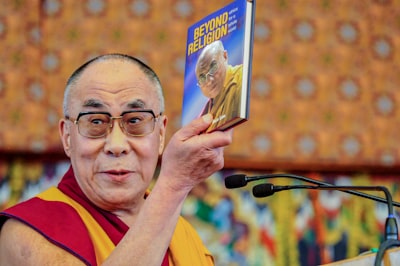Dalai Lama Longevity Hopes: Implications for Tibetan Buddhism and World Affairs
With his recent declaration of wishing to live beyond 130 years, Tibet’s spiritual leader, the Dalai Lama, has reignited global curiosity about longevity, Tibetan Buddhism, and the political complexities surrounding his succession. As he approaches his 90th birthday, the Dalai Lama’s statements on reincarnation, exile, and Chinese interference underscore debates that are increasingly critical in the spheres of religion, international politics, and cultural preservation.
The Dalai Lama and Longevity: Why the World Is Watching
For centuries, Buddhist traditions have emphasized cultivating a long, purposeful life through meditation, mindfulness, and ethical living. The Dalai Lama’s hope to surpass 130 years not only underscores ancient longevity beliefs in Tibetan Buddhism but also captures global attention amid modern interest in health, wellness, and spiritual resilience.
Key search trends: “How old is the Dalai Lama?”, “tips for longevity from Buddhist monks”, “longest-lived spiritual leaders”
Reincarnation and Controversy: Who Decides the Next Dalai Lama?
A central doctrinal belief in Tibetan Buddhism is the reincarnation of the Dalai Lama, known as the tulku system. However, politics complicate this succession. Beijing asserts its governance over the next appointment—a stance rooted in imperial Chinese precedent—while the Dalai Lama insists that only his institution, the Gaden Phodrang Trust, holds the legitimate authority to recognize his reincarnation, potentially outside of Chinese-controlled Tibet.
Relevant queries:
- “What is the process of choosing the next Dalai Lama?”
- “China vs Dalai Lama succession”
- “Dalai Lama reincarnation outside China”
Tibet in Exile: Spiritual, Cultural, and Political Resilience
Since 1959, when the Dalai Lama fled Tibet following a failed uprising against Chinese rule, the Tibetan government-in-exile has worked to maintain its cultural, religious, and national identity in Dharamshala, India. The Dalai Lama's global influence and approach to nonviolent resistance have earned him international acclaim, including the Nobel Peace Prize in 1989. Still, the challenge of preserving Tibetan culture and autonomy remains urgent amid ongoing Chinese efforts to suppress and Sinicize Buddhism.
Popular questions: “What is life like for Tibetans in exile?”, “history of the Tibetan uprising”, “Tibet government-in-exile”
Tibetan Buddhism’s Global Appeal: Modern Relevance and Spiritual Insights
The Dalai Lama’s teachings extend beyond borders, resonating with millions worldwide who look to Tibetan Buddhism for wisdom on compassion, mindfulness, and holistic well-being. The controversy over his succession, as well as the broader struggle for religious freedom in Tibet, continues to attract international support and advocacy.
Key Points on Why This Matters:
- The Dalai Lama’s longevity claim fuels renewed discussion about healthy aging from a spiritual perspective.
- His insistence on a free-world reincarnation challenges China’s grip over Tibetan Buddhism.
- Political succession is tied to cultural preservation and human rights in occupied Tibet.
- The saga influences global interfaith dialogues and inspires wellness movements.
FAQ: Dalai Lama, Reincarnation, and Tibet in 2024
Q: Who chooses the next Dalai Lama? A: Traditionally, senior Tibetan monks and the Dalai Lama’s institution identify his reincarnation. China claims a right to approve, sparking ongoing disputes.
Q: Where does the Dalai Lama live now? A: Dharamshala, India, where the Tibetan government-in-exile is based.
Q: Why does the succession matter politically? A: The Dalai Lama is both a spiritual and a symbolically political figure for Tibetans; his succession could impact the future of Tibetan autonomy and international advocacy.
Q: Can the Dalai Lama really live to 130? A: Although rare, spiritual leaders in some traditions are believed to possess extraordinary longevity. The Dalai Lama’s claim also serves as an aspiration for hope and continuity for Tibetans.
Conclusion: The Dalai Lama’s Legacy and the Future of Tibetan Buddhism
The Dalai Lama’s remarkable vitality and spiritual leadership continue to shape not only Tibetan Buddhism but also global debates on religious freedom, human rights, and longevity. Whether or not he reaches his goal of 130 years, his vision for a compassionate, autonomous Tibet—and the manner in which his reincarnation is handled—will have lasting impacts on both the Buddhist world and international relations. For those concerned with cultural heritage, wellness, and spiritual guidance, watching the Dalai Lama’s journey remain as vital as ever.
Further Reading:

Comments
No comments yet. Be the first to comment!